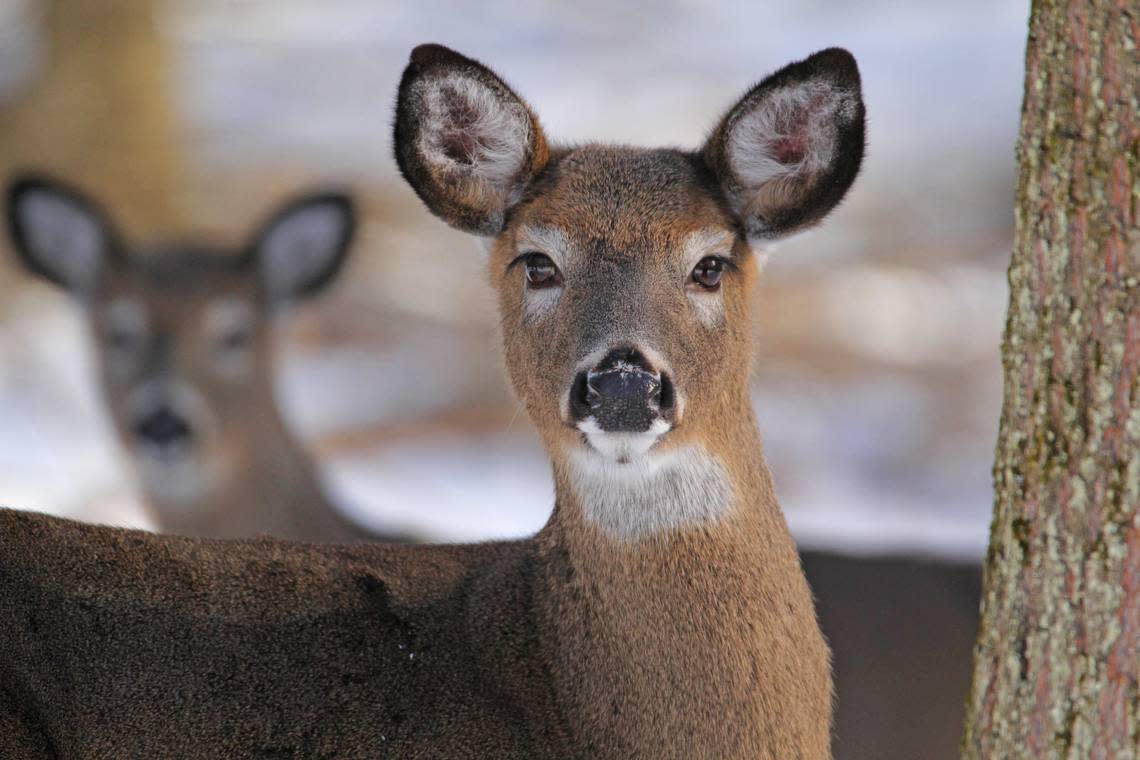Afield: Fall hunting seasons have started in PA. Here are dates, changes to know for 2024
The earliest fall hunting seasons in Pennsylvania began on Sept. 2. This includes doves and resident Canada geese. Hikers, birders and other users of public land should be aware that these hunting seasons have started and wear fluorescent orange while afield.
The first dove season runs Sept. 2 through Nov. 29. The first segment of the resident Canada goose season is Sept. 2-25.
Other early seasons include squirrel season, which began Sept. 14 and runs through Nov. 29. Rabbit and grouse seasons begin Oct. 19, with a youth rabbit season running Oct. 5-19. Pheasant season starts Oct. 26, with a youth season running Oct. 12-19.
In Centre County, duck season opens Oct. 12. This includes ducks, sea ducks, mergansers and coots. The special firearms season for junior and senior license holders, mentored permit holders, active duty military and persons with a permit to use a vehicle as a blind is statewide Oct. 24-26.
Archery season
More than 350,000 bowhunters will pursue whitetails this fall in Pennsylvania. “No other state has as many bowhunters as Pennsylvania,” said Game Commission Executive Director Steve Smith.
“Hunters appreciate what’s available and take advantage of it,” he added.
According to the Game Commission, last year, in the 2023-24 seasons, archers harvested an estimated 154,850 whitetails (83,370 bucks and 71,480 antlerless deer). That was about 36% of the overall harvest.
The season opens Sept. 21 in three wildlife management units near Philadelphia and Pittsburgh. Statewide archery season begins Oct. 5 and runs through Nov. 22.
Muzzleloader bear season reduced
The October muzzleloader bear season has accounted for a large percentage of the bear harvest since its first year. Coupled with the other seasons, Pennsylvania’s bear population has decreased by several thousand. For this year, the commission shortened muzzleloader bear season from six to three days — Oct. 24-26. This move was made to reduce the harvest of female bears and therefore help to stabilize the bear population.
Antlerless deer licenses
Last year, the PGC instituted a new antlerless deer license procedure that had a few rough edges. They made refinements for 2024, and all reports that I have had from hunters, as well as my own personal experience, indicate that there were no major issues this year.
The fourth and final round of doe license sales began on Aug. 26. As of this writing, over 91,000 antlerless deer licenses remain for purchase, with a maximum of six licenses per hunter. Centre County is part of two wildlife management units. WMU 2G (Centre County north of I-80) sold out on June 25. The last remaining license for WMU 4D (Centre County south of I-80) was just purchased on Sept. 1.
Areas that still have licenses available are WMUs 2B, 2C, 2E, 4A, 4B and 5A. WMU 2E is just west of Centre County and includes parts of Clearfield, Cambria, Indiana and Jefferson counties. WMU 4A is south of Centre — including parts of Blair, Huntingdon, Bedford and Fulton counties. WMU 4B includes parts of Mifflin, Juniata, Huntingdon, Franklin and Perry counties.

Sunday hunting
Only three Sundays are open to hunting, the same as last year. These three Sundays are Nov. 17 and 24, as well as Dec. 1.
Big change
Likely the biggest change affecting Centre County hunters is an extended firearms season for antlerless deer. The season will be held Jan. 2-20 in three wildlife management units — 4A, 5A and 4D, which includes the southern two thirds of Centre County. This will run concurrently with the final two weeks of the flintlock and late archery seasons. Of course, you need a valid antlerless deer license for any of these three WMUs to hunt them. Licenses are still available for WMU 4A.
Hunt safely, be aware of others using our forests, and good luck afield.
Mark Nale, who lives in the Bald Eagle Valley, is a member of the Pennsylvania Outdoor Writers Association and can be reached at MarkAngler@aol.com .






